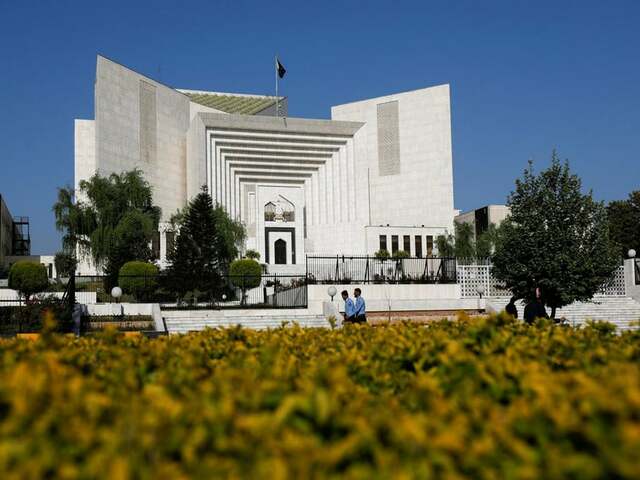
ISLAMABAD: The federal government, Friday, failed to move in the Senate the Supreme Court (Practice and Procedure) (Amendment) Ordinance 2024 with the House having adjourned abruptly due to the lack of quorum without transacting its regular business.
Law Minister Azam Tarar was scheduled to lay before the Senate this Ordinance in the House meeting that was presided over by Saleem Mandviwalla from Pakistan Peoples Party (PPP).
Shortly after the session began, Falak Naz from Pakistan Tehreek-e-Insaf (PTI) pointed out the quorum, during the question hour, found to be lacking. On counting, only 13 senators were revealed to be present in the House.
Mandviwalla adjourned the session for half an hour— waiting for more senators to join the House proceedings. When the session resumed, the number of senators present in the Senate reached 15, against the minimum required number of 24 senators in 96-seat Senate to meet the quorum.
The session was then adjourned till Monday.
On 19 September, President Asif Zardari promulgated the Supreme Court (Practice and Procedure) (Amendment) Ordinance 2024 which mainly provides that every cause, appeal or matter before the SC shall be heard and disposed of by a bench constituted by the committee comprising the chief justice of Pakistan, the next most senior judge of the SC and an SC judge nominated by the CJP.
Soon after this ordinance was promulgated, the recently retired CJP Qazi Faez Isa reconstituted the judges’ committee for allegedly paving way for the passage of the 26th Constitutional Amendment.
Article 89 deals with presidential ordinances. “The President may, except when the Senate or National Assembly is in session, if satisfied that circumstances exist which render it necessary to take immediate action, make and promulgate an ordinance as the circumstances may require,” Article 89 (1) reads.
An ordinance, in the light of Article 89, remains in effect for 120 days and can be extended only once for a further 120 days, if a resolution for its extension is passed by either Senate or NA, and stands permanently lapsed after the passage of the extended period.
Copyright Business Recorder, 2024